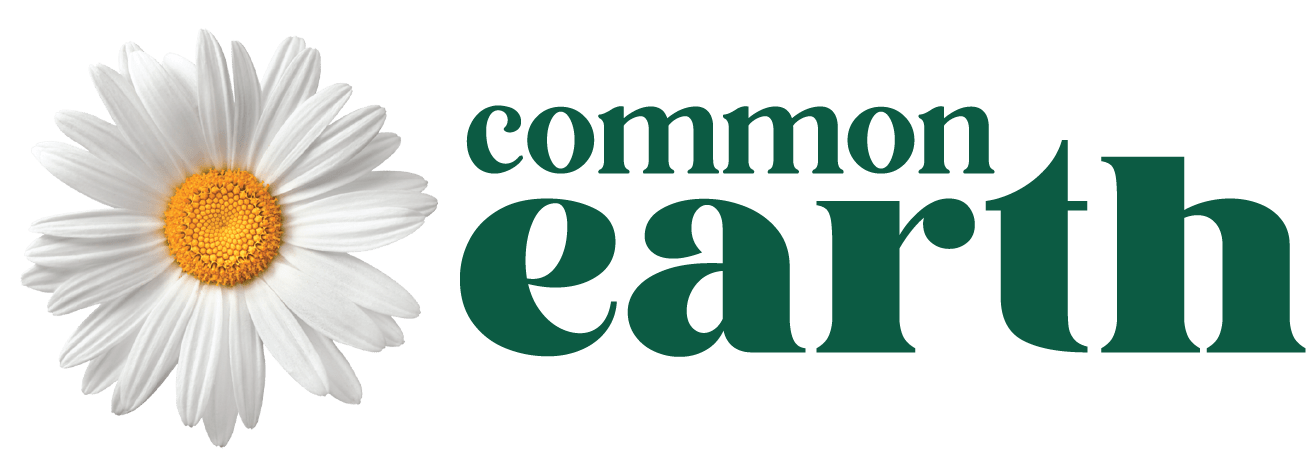- Home /
- Articles /
- 32 Climate Books To Help Move Us Forward
32 Climate Books To Help Move Us Forward



I believe that our stories shape how we understand who we are and our place in the world. As we grapple with the metacrisis (including the existential crisis) that we currently face, I think the stories we tell will help us to rewrite our understanding of who we are and how we can most creatively and lovingly move toward a sustainable way of being.
You’ll be hearing more about “kiths“—small, intentional communities embodying a post-carbon, caring society around the world. I recently met with a group of alumni, and one woman mentioned that her kith has decided to focus on being a book club. They have an author among them and are starting with her book, *Who Knew?: A Simple Shift in Your Thinking from “Outside-In” to “Inside-Out” Will Change Your Life* by June Earle.
They asked if I had any recommendations for future reads that would continue their exploration of our current global predicament and potential responses—books outside of the Insights course they’ve already explored. As an avid reader, I was happy to take on the task of compiling a list of my favorites. Here, in no particular order, are the top titles that came to mind.
What are some of your favorites that I might have missed? What are some of your favorites that I might have missed? I’m happy to hear from you at spatterson@commonearth.com.
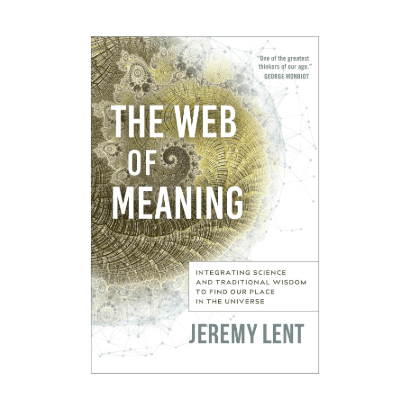
1 – The Web of Meaning
Integrating Science and Traditional Wisdom to Find our Place in the Universe
by Jeremy Lent
It offers a coherent and intellectually solid foundation for an alternative worldview based on deep interconnectedness, showing how modern scientific knowledge echoes the ancient wisdom of earlier cultures.
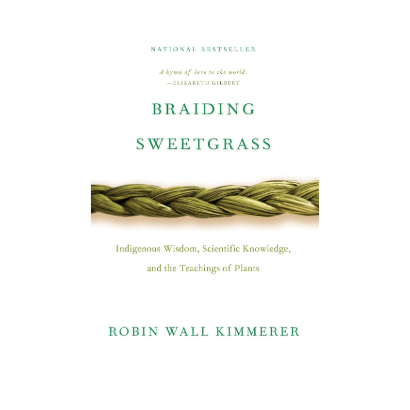
2 – Braiding Sweetgrass
Indigenous Wisdom, Scientific Knowledge, and the Teachings of Plants.
by Robin Wall Kimmerer
A lovely series of essays that share her thoughts on life and the planet from an Indigenous perspective. Check out the edition for youth also!
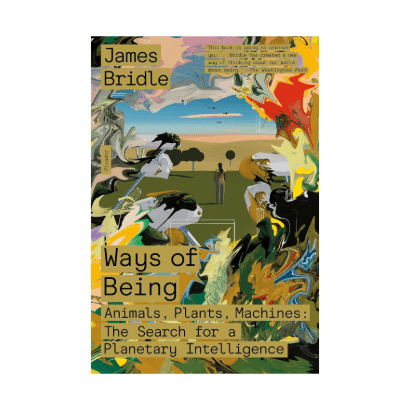
3 – Ways of Being
Animals, Plants, Machines: The Search for a Planetary Intelligence
by James Bridle
A fantastic exploration of the anthropocentric ways in which we have defined intelligence and amazing examples of where else it shows up other than in us.
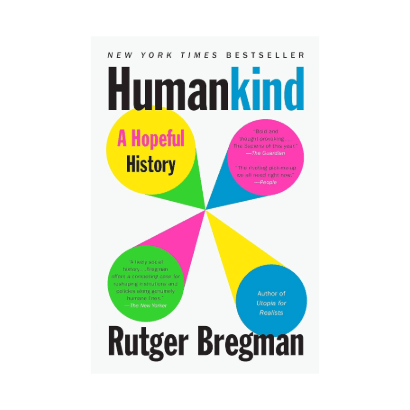
4 – Humankind
A Hopeful History
by Rutger Bregman
A fabulous book dispelling the myth that humans are primarily driven by self-interest and illustrates how we are hardwired for kindness and cooperation.
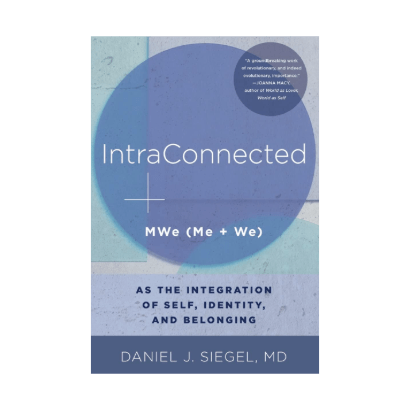
5 – IntraConnected
MWe (Me + We) as the Integration of Self, Identity, and Belonging
by Daniel J. Siegel M.D.
Reveals how our culture may give us a message of separation as a solo, isolated self, but a wider perspective unveils that who we are may be something more—broader than the brain, bigger even than the body—and fundamental to social systems and the natural world.
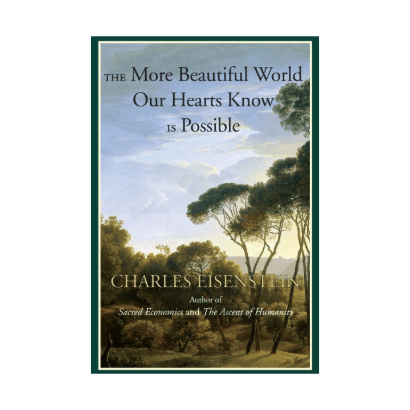
6 – The More Beautiful World Our Hearts Know is Possible
by Charles Eisenstein
In a time of social and ecological crisis, what can we as individuals do to make the world a better place? This inspirational and thought-provoking book serves as an empowering antidote to the cynicism, frustration, paralysis, and overwhelm so many of us are feeling, replacing it with a grounding reminder of what’s true: we are all connected, and our small, personal choices bear unsuspected transformational power. By fully embracing and practicing this principle of interconnectedness—called interbeing—we become more effective agents of change and have a stronger positive influence on the world.
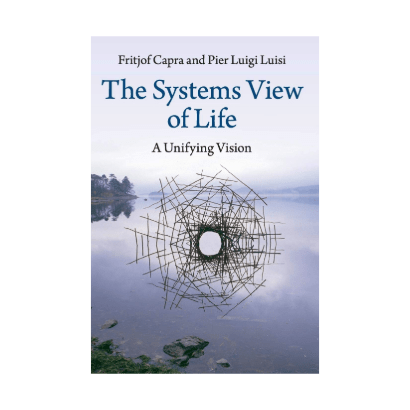
7 – The Systems View of Life
A Unifying Vision
by Fritjof Capra and Pier Luigi Luigi
Over the past thirty years, a new systemic conception of life has emerged at the forefront of science. New emphasis has been given to complexity, networks, and patterns of organisation, leading to a novel kind of ‘systemic’ thinking. This volume integrates the ideas, models, and theories underlying the systems view of life into a single coherent framework.
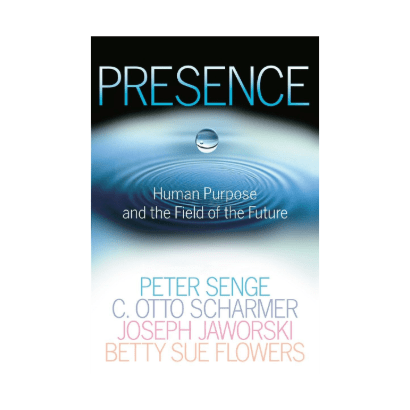
8 – Presence
Human Purpose and the Field of the Future
by Senge, Scharmer, Jaworski, Flowers
The book introduces the idea of “presence”—a concept borrowed from the natural world that the whole is entirely present in any of its parts—to the worlds of business, education, government, and leadership. Too often, the authors found, we remain stuck in old patterns of seeing and acting. By encouraging deeper levels of learning, we create an awareness of the larger whole, leading to actions that can help to shape its evolution and our future
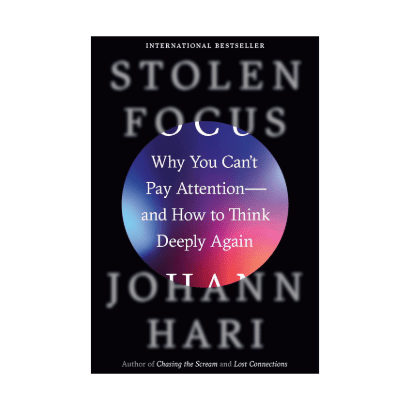
9 – Stolen Focus
Why You Can’t Pay Attention – and How to Think Deeply Again
by Johann Hari
An exploration of why it’s so hard to practice the Presence depicted in the book above.
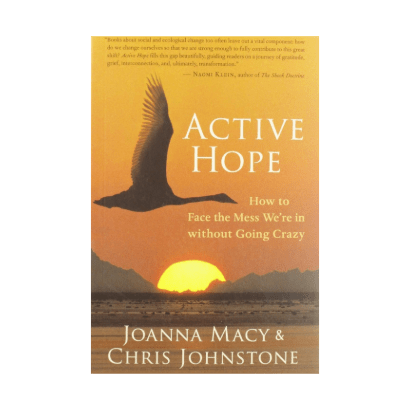
10 – Active Hope
How to Face the Mess We’re in without Going Crazy
by Joanna Macy & Chris Johnstone
Active Hope shows us how to strengthen our capacity to face this crisis so that we can respond with unexpected resilience and creative power. Drawing on decades of teaching an empowerment approach known as the Work That Reconnects, the authors guide us through a transformational process informed by mythic journeys, modern psychology, spirituality, and holistic science.
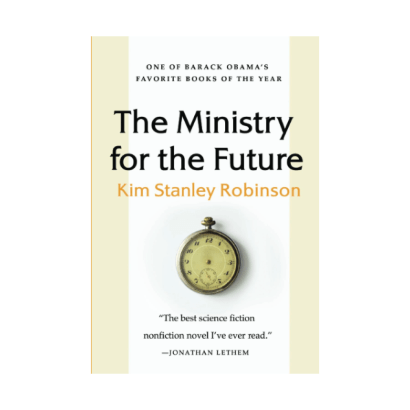
11 – The Ministry of the Future
by Kim Stanley Robinson
The Ministry for the Future is a masterpiece of the imagination, using fictional eyewitness accounts to tell the story of how climate change will affect us all. Warning – can be a bit of slog – especially at the beginning but keep going.
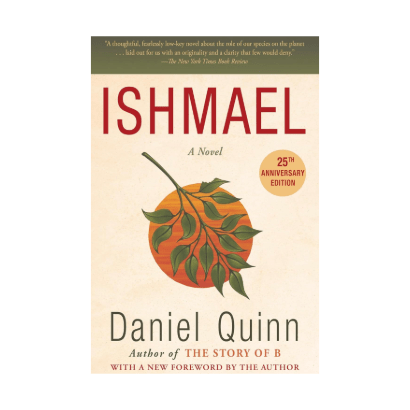
12 – Ishmael
by Daniel Quinn
A fictional exploration of how we can save ourselves from ourselves as told by a student learning from his teacher who happens to be a gorilla.
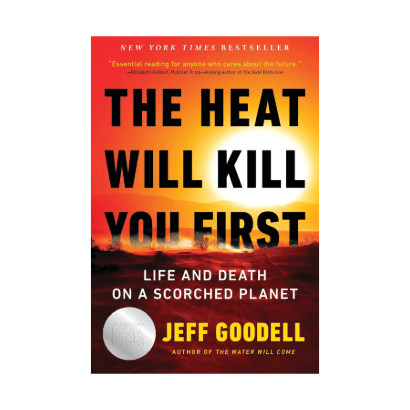
13 – The Heat will Kill You First
Life and Death on a Scorched Planet
by Jeff Goodell
Heat is the first order threat that drives all other impacts of the climate crisis. And as the temperature rises, it is revealing fault lines in our governments, our politics, our economy, and our values. The basic science is not complicated: Stop burning fossil fuels tomorrow, and the global temperature will stop rising tomorrow. Stop burning fossil fuels in 50 years, and the temperature will keep rising for 50 years, making parts of our planet virtually uninhabitable. It’s up to us. The hotter it gets, the deeper and wider our fault lines will open.
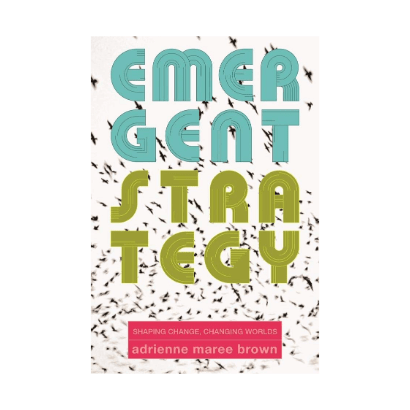
14 – Emergent Strategy
Shaping Change, Changing Worlds
by adrienne maree brown
Inspired by Octavia Butler’s explorations of our human relationship to change, Emergent Strategy is radical self-help, society-help, and planet-help designed to shape the futures we want to live. Change is constant. The world is in a continual state of flux. It is a stream of ever-mutating, emergent patterns. Rather than steel ourselves against such change, this book invites us to feel, map, assess, and learn from the swirling patterns around us in order to better understand and influence them as they happen. PS – Her books called Holding Change and Pleasure Activism are pretty awesome also
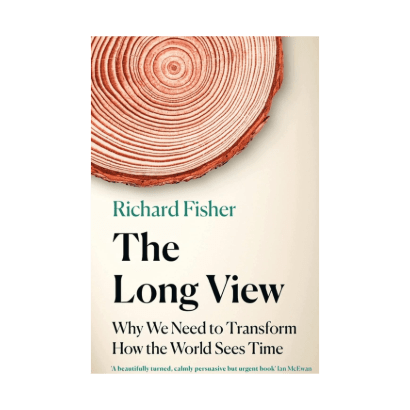
15 – The Long View
Why we Need to Transform How the World Sees Time
by Richard Fisher
Humans are unique in our ability to understand time, able to comprehend the past and future like no other species. Yet modern-day technology and capitalism have supercharged our short-termist tendencies and trapped us in the present, at the mercy of reactive politics, quarterly business targets and 24-hour news cycles.
It wasn’t always so. In medieval times, craftsmen worked on cathedrals that would be unfinished in their lifetime. Indigenous leaders fostered intergenerational reciprocity. And in the early twentieth century, writers dreamed of worlds thousands of years hence. Now, as we face long-term challenges on an unprecedented scale, how do we recapture that far-sighted vision?
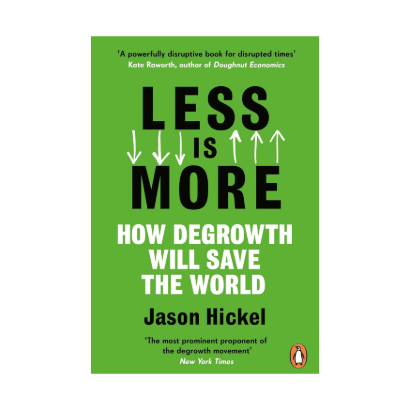
16 – Less is More
How Degrowth will Savee the World
by Jason Hickel
This book shines a light on the ecological breakdown and the political and economic systems that are causing it. It shows us how we can bring our economy back into balance with the living world and build a thriving society for all. This is NOT a dry economics book – great read!
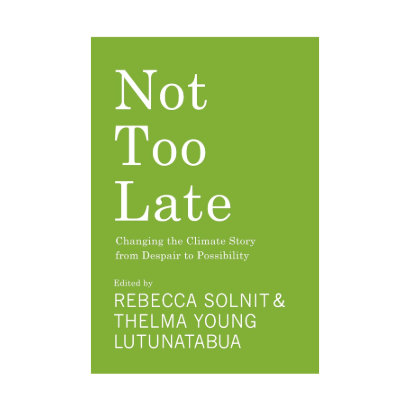
17 – Not Too Late
Changing the Climate Story from Despair to Possibility
by Rebecca Sonit & Thelma Young Lutunatabua
We know that we are all capable of allowing our thinking to take us into the basement. If you want to immerse yourself in a book of thoughts that will help return you to the penthouse where you can see the green fields of possibility – pick up this book.
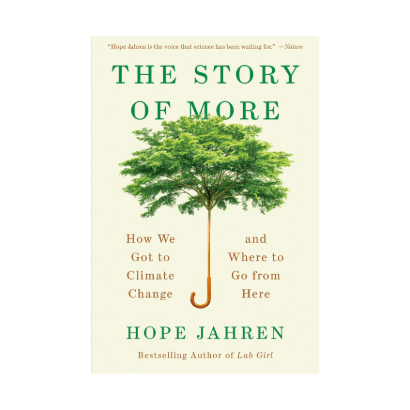
18 – The Story of More
How We Got to Climate Change and Where to Go From Here
by Hope Jahren
Jahren celebrates the long history of our enterprising spirit, but also shows how that spirit has created excesses that are quickly warming our planet to dangerous levels. In short, highly readable chapters, she takes us through the science behind the key inventions that, even as they help us, release untenable amounts of carbon dioxide into the atmosphere. She explains the current and projected consequences of greenhouse gases and shares the science-based tools that could help us fight back.
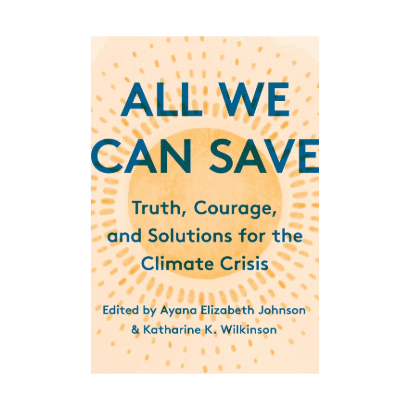
19 – All We Can Save
Truth Courage and Solutions for the Climate Crisis
by Ayana Elizabeth Johnson & Katherine K. Wilkinson
All We Can Save illuminates the expertise and insights of dozens of diverse women leading on climate in the United States—scientists, journalists, farmers, lawyers, teachers, activists, innovators, wonks, and designers, across generations, geographies, and race—and aims to advance a more representative, nuanced, and solution-oriented public conversation on the climate crisis. These women offer a spectrum of ideas and insights for how we can rapidly, radically reshape society.
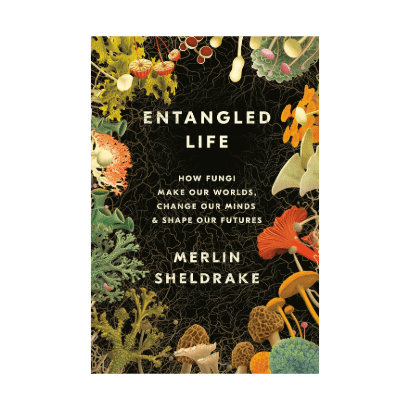
20 – Entangled Life
How Fungi Make our Worlds, Change our Minds & Shape our Future
by Merlin Sheldrake
When we think of fungi, we likely think of mushrooms. But mushrooms are only fruiting bodies, analogous to apples on a tree. Most fungi live out of sight, yet make up a massively diverse kingdom of organisms that supports and sustains nearly all living systems. Fungi provide a key to understanding the planet on which we live, and the ways we think, feel, and behave.
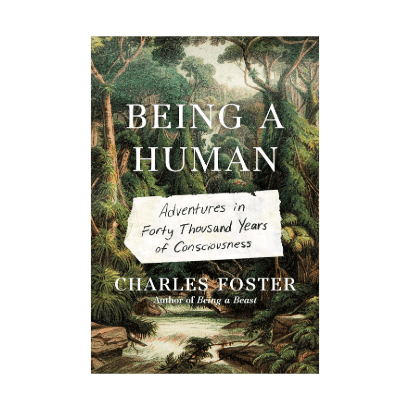
21 – Being A Human
Adventures in Forty Thousand Years of Consciousness
by Charles Foster
How did humans come to be who we are? In book Being a Beast, he set out to understand the consciousness of animal species by living as a badger, otter, fox, deer, and swift. Now, he inhabits three crucial periods of human development to understand the consciousness of perhaps the strangest animal of all―the human being.
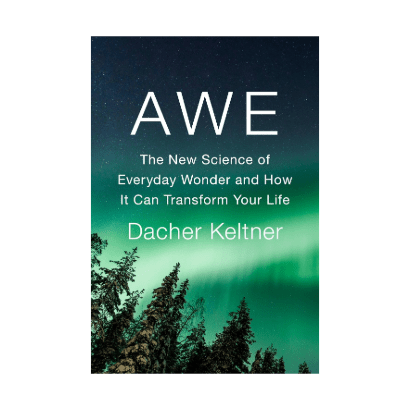
22 – Awe
The New Science of Everyday Wonder and How it Can Transform Your Life
by Dacher Keltner
Awe is mysterious. How do we begin to quantify the goose bumps we feel when we see the Grand Canyon, or our utter amazement when we watch a child walk for the first time? Until recently, there was no science of awe, that feeling we experience when we encounter vast mysteries that transcend our understanding of the world. Revolutionary thinking, though, has shown how humans have survived over the course of evolution thanks to our capacities to cooperate, form communities, and create culture—all of which are spurred by awe.
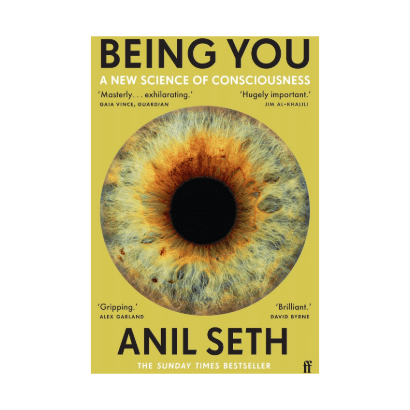
23 – Being You
A New Science of Consciousness
by Anil Seth
What does it mean to “be you”—that is, to have a specific, conscious experience of the world around you and yourself within it? There may be no more elusive or fascinating question. Historically, humanity has considered the nature of consciousness to be a primarily spiritual or philosophical inquiry, but scientific research is now mapping out compelling biological theories and explanations for consciousness and selfhood.
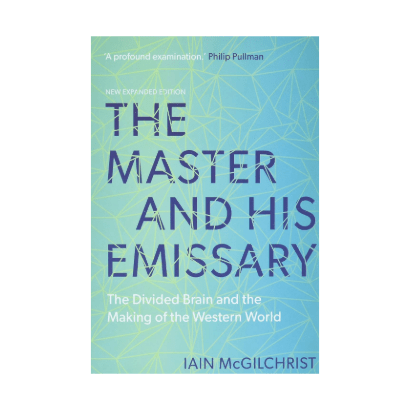
24 – The Master and His Emissary
The Divided Brain and the Making of the Western World
by Ian McGilchrist
This book reveals that the difference between the two sides of the brain is profound. He argues that, despite its inferior grasp of reality, the left hemisphere is increasingly taking precedence in today’s world, with potentially disastrous consequences.
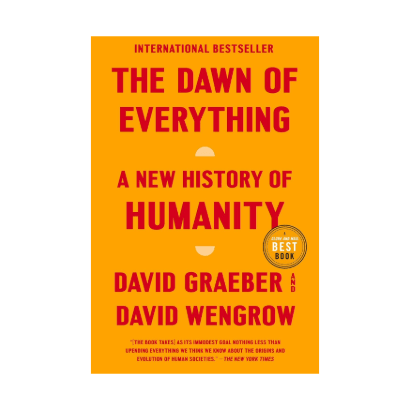
25 – The Dawn of Everything
A New History of Humanity
by David Graeber & David Wengrow
For generations, our remote ancestors have been cast as primitive and childlike–either free and equal innocents, or thuggish and warlike. Civilization, we are told, could only be achieved by sacrificing those original freedoms, or alternatively, by taming our baser instincts. It shows how such theories first emerged in the eighteenth century as a conservative reaction to powerful critiques of European society posed by Indigenous observers and intellectuals. Revisiting this encounter has startling implications for how we make sense of human history today, including the origins of farming, property, cities, democracy, slavery, and civilization itself.
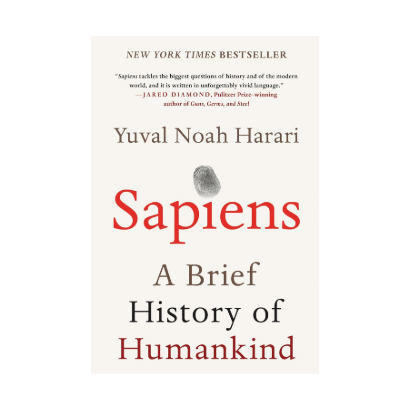
26 – Sapiens
A Brief History of Humankind
by Yuval Noah Harari
Drawing on insights from biology, anthropology, palaeontology, and economics, he explores how the currents of history have shaped our human societies, the animals and plants around us, and even our personalities. Have we become happier as history has unfolded? Can we ever free our behaviour from the heritage of our ancestors? And what, if anything, can we do to influence the course of the centuries to come? Also recommend his other books.
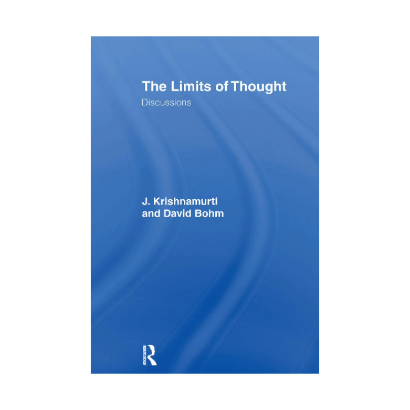
27 – The Limits of Thought
Discussions
by J. Krishnamurti & David Bohm
These two great thinkers discuss the nature of consciousness and the condition of humanity. The dialogues address issues of truth, desire, awareness, tradition, and love.
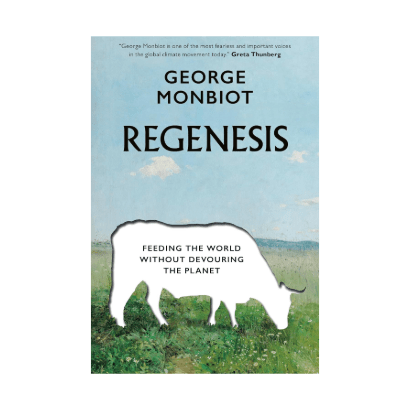
28 – Regenesis
Feeding the World without Devouring the Planet
by George Monbiot
This is a great book addressing how we need to change how we feed ourselves. So are so many of his books; I also recommend How Did We get into This Mess, Out of the Wreckage, Manifesto for a New World Order, and Feral .
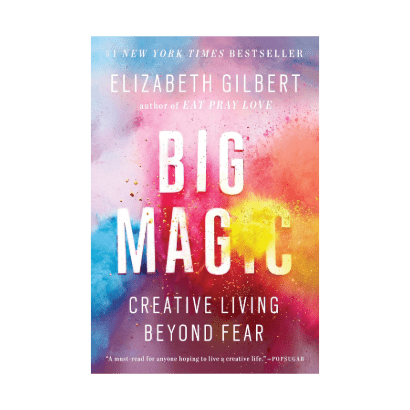
29 – Big Magic
Creative Living Beyond Fear
by Elizabeth Gilbert
We sure could use some additional inspiration and creativity to figure out a path forward to the new emerging post-carbon caring society. Gilbert offers some insights into how to infuse our lives with more mindfulness and passion.
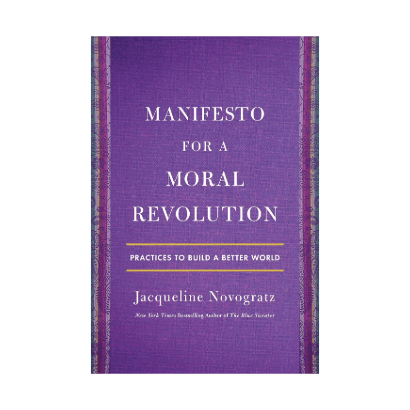
30 – Manifesto for a Moral Revolution
Practices to Build a Better World
by Jacqueline Novogratz
Drawing on inspiring stories from change-makers around the world and on memories of her own most difficult experiences, Jacqueline divulges the most common leadership mistakes and the mind-sets needed to rise above them. The culmination of thirty years of work developing sustainable solutions for the problems of the poor, Manifesto for a Moral Revolution offers the perspectives necessary for all those―whether ascending the corporate ladder or bringing solar light to rural villages―who seek to leave this world better off than they found it.
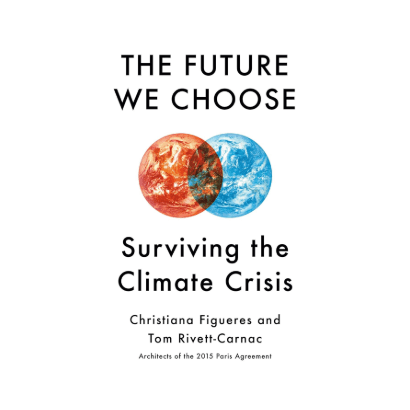
31 – The Future We Choose
Surviving the Climate Crisis
by Christiana Figueres & Tom Rivett-Carnac
The authors outline two possible scenarios for our planet. In one, they describe what life on Earth will be like by 2050 if we fail to meet the Paris Agreement’s climate targets. In the other, they lay out what it will be like to live in a regenerative world that has net-zero emissions. They argue for confronting the climate crisis head-on, with determination and optimism. The Future We Choose presents our options and tells us what governments, corporations, and each of us can, and must, do to fend off disaster.
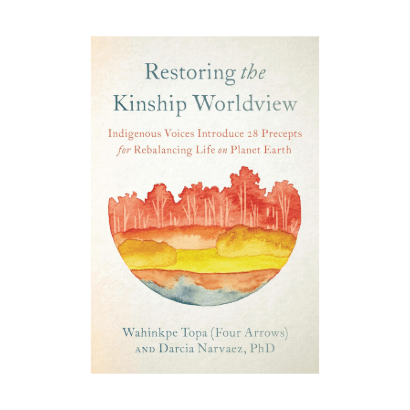
32 – Restoring the Kinship Worldview
Indigenous Voices Introduce 28 Precepts for Rebalancing Life on Planet Earth
by Wahinkpe Topa (Four Arrows) & Darcia Narvaez
The book emphasizes our deep need to move away from the dominant Western paradigm-one that dictates we live without strong social purpose, fails to honor the earth as sacred, leads with the head while ignoring the heart, and places individual “rights” over collective responsibility. Restoring the Kinship Worldview is rooted in an Indigenous vision and strong social purpose that sees all life forms as sacred and sentient-that honors the wisdom of the heart, and grants equal standing to rights and responsibilities.
